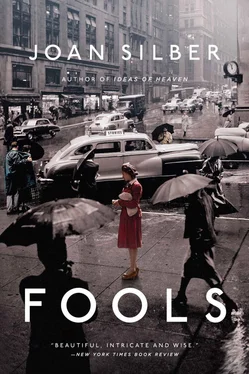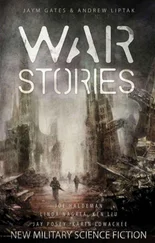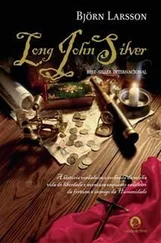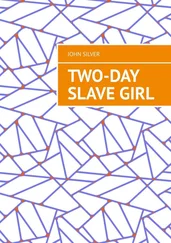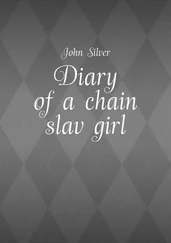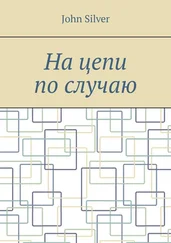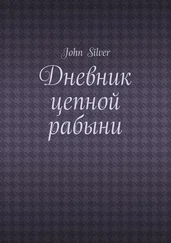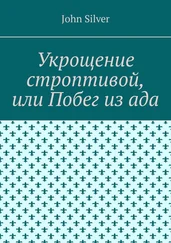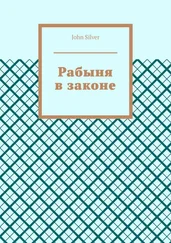What did my mother know about religion? Bubkes . She still had some Yiddish but no theology. What I really wanted to hear was how my father was doing. “He’s okay but he’s a mess,” my mother said. “He always was but now he looks it.”
Afterward, Adinah and I talked about whether the truth would out, no matter what, once you got older; whether your physical form stopped being able to hide a thing. Plenty of older people lied to themselves — perky movie stars and oily politicians, sure of their charm and persuasiveness, sure their expensive plastic surgery actually worked — but their faces were so obvious . I myself was hiding a few things from the past (Adinah didn’t know all) and hoped to someday become the entirely straightforward figure I only half resembled now.
And what about Adinah? In some ways she was guileless — she told customers at work which items were overpriced, she announced, “I just farted,” when we were on the bus — but she was also veiled and silent. Often. And why not? Why shouldn’t she keep some of her to herself? I wanted us both to have privacy.
In May, we celebrated a year in our fantabulous apartment by having a picnic in Golden Gate Park. We’d both spent time in the park at antiwar demonstrations and it was somehow especially sweet to be using it for a more idle purpose. I was halfway through a surprisingly delicious spiced tempeh sandwich when Adinah said, “You know, I think I might be pregnant.”
Her little tendrils of hair were gleaming in the sun, and I thought, She looks about twelve, it’s not possible. (When was her last period? I couldn’t fucking remember. And did I know when she used her diaphragm? I did not.) Mostly I thought: What? “Are you sure?” I said.
Everything in her face changed. “Forget I mentioned it,” she said. “Never mind.”
I wanted to forget about it. I didn’t want to deal with it until I absolutely had to. In college one of my girlfriends had had an abortion. That was kind of normal. Adinah wasn’t normal; she was from the planet of pure feelings, a place with a molten core.
She was packing up the picnic stuff, the paper cups and the thermos and the box of chocolate cupcakes we hadn’t eaten. She was getting up to leave.
“Adinah!” I said.
“Never mind,” she said. She had the loaded tote bag over her arm.
“Sit down. Hey. We’re talking,” I said. “We’re talking.”
When she sat down, I said, “So how do you feel?” as if I were some kind of goddamn counselor. I knew how she felt.
Oh, she’d guessed for a few weeks, so she’d had time (she said, making her voice go quieter) to get used to the idea that this was supposed to happen. What did that mean, “supposed to”? My father believed in the great hand of fate and look where it got him. “What about free will?” I said.
“Stop it,” she said.
I could soften, if I wanted, or I could harden myself against her. I saw I could go either way, and I didn’t want to go anywhere. I could imagine myself single once more, back in the world as the stone-hearted person I probably really was. I didn’t exactly want to picture a baby (boy or girl?). Especially one I might argue to abort.
“I’ll have it with or without you, you know,” she said.
“Give me time,” I said, which enraged her.
But she did wait — where was she going? — while I tormented myself with the prospect of deserting her. We didn’t even talk during these days. When I came out of it, as if I’d been fasting, I saw clearly. I was staying for this. Who was I kidding?
I thought Adinah would never entirely emerge from being mad at me, but she mostly did. Twenty times a day we said to each other, We’ll be fine and It’ll be so great . By the time we got to, Timothy if it’s a boy and Rebecca if it’s a girl , the shock of it felt like a drug I liked.
One of her friends said that Adinah looked like a deer when she was pregnant. Her small, deep-eyed face, her slender arms and legs, the swelling bodily curve of her. She carried herself nimbly, with that slight sway she developed. I was the galumphing mate, trucking in supplies, fixing up the room. She nagged me about getting the shelves just right.
Adinah’s parents did not react well when she tried to begin by first telling them she was living with this guy who was me. Whatever they said (she didn’t want to tell me) was so scathing, so full-tilt, so heavy-duty, that she halted the conversation right there and decided not to speak to them again. Ever? “You have no idea,” she said. We had a nondenominational wedding, with a bunch of great Sufi musicians really wailing, and my wildly enthusiastic mother in attendance.
I had maybe four good years with Adinah. Becky the baby was a trip, as we kept saying. We didn’t know what hit us, but some of it was great. I was one of those fathers who couldn’t stop photographing her every yawn and tiny toenail. Adinah was used to kids — she was the oldest of six — and she got strong and fussy in a way I hadn’t expected. In one of the pictures I took then she looked like a pioneer mother, chin up, apron on, babe tucked into the crook of her arm.
We tried bringing Becky with us to our Sufi group — Adinah wanted to show how cute she was — but the kid took an immediate dislike to the music, and Adinah had to take her outside when she started bawling. Adinah looked martyred and dismal, standing in the hall jiggling the baby against her shoulder. So I made the noble gesture of staying home with Becky on the nights Adinah felt a need to retune her consciousness to the eternal. I was sort of lapsing out of Sufism by then anyway.
Around this time, I talked Adinah into letting me photograph her stepping out of the tub. Nothing lurid, but I took the film to a friend’s darkroom, no Kodak lab for these. “I look so pale,” Adinah said when she saw them, but she liked them, I could tell. They had the abstraction of black-and-white, and in the arcs and mounds and dimplings, the blurred aureoles and dusky triangle, Adinah’s personal flesh was elevated, made marble. We were otherwise in a morass of baby poop and bananas and spit-up. We never went out, what would we pay a sitter with? Our sex life was still okay, more than okay, but not all that frequent, and the pictures did us good, they felt like proof. I may have needed them more than Adinah did.
At my office I was such a pest with my baby portraits that some supervisor decided I should go photograph clients, to show them working productively at the jobs we’d nagged them into getting. I loved this assignment — J. Perez putting a pizza in the oven, A. LaMarca sticking her butt out to lean across a file cabinet, X. Jones leading the hokey-pokey at a day-care center. When a neighborhood newspaper picked up some of the day-care shots, I was so thrilled that I kept bothering the editor to buy more photos of mine. A million stories in the naked city. I got a great one of two guys fighting over their place in line at an Elvis memorial — eyes wild, jackets flailing, and they both had Elvis hairdos — and this was such a hit that a real newspaper (a major paper, if not our best) bought it, and eleven months later I talked them into a staff job.
I had two things going for me: I knew how to handle myself on the street and I had enough cool to move in fast for a shot and get it before it was gone. Sometimes they sent me out with the police reporter, when they needed someone in a hurry. Blood and gore. Me, holding my flashing camera over a facedown body, with cops all around making terrible jokes. All in a day’s work.
Adinah hated hearing my stories. “Don’t tell me about it,” she said. “I can’t stand it when people get all hip about how close they can get to evil. Like their numbness is something to brag about. It’s really kind of revolting.”
Читать дальше
